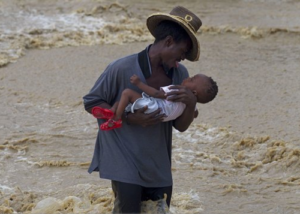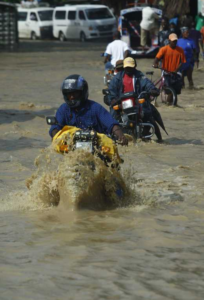 The health ministry in Port-au-Prince has confirmed that the country’s cholera epidemic has reached the Haitian capital.
The health ministry in Port-au-Prince has confirmed that the country’s cholera epidemic has reached the Haitian capital.
Doctors are treating 73 people for cholera, amid fears the disease could spread across the quake-hit city.
Dozens of suspected cases are also being investigated, which has feared an outbreak since October.
The country’s health ministry says 583 people have died in Haiti’s epidemic, and more than 9,000 are being treated.
Several cases were in fact confirmed in Port-au-Prince in the first few weeks of Haiti’s cholera outbreak.
 Haiti’s health minister said a cholera outbreak in the capital was likely
Haiti’s health minister said a cholera outbreak in the capital was likelyAll of those affected had recently arrived in the city from the Artibonite region, where the disease was first detected.
Many of the current patients as well as people with suspected cholera had also come to Port-au-Prince from elsewhere in Haiti, including the Artibonite Valley, a health ministry official told the AP news agency.
But the ministry confirmed that at least one patient, a 3-year-old boy, had caught the disease although he had not recently travelled or been in contact with anybody from the Artibonite region.
Outbreak ‘likely’
Health minister Ariel Henry said that a sizeable outbreak in Port-au-Prince now appeared likely.
“It’s coming,” Mr Henry told the AFP news agency.
He also said that at least one person in Port-au-Prince had died of the disease.
On Tuesday the ministry said across Haiti the death toll from the epidemic had risen to 583, from 544 on Monday.
The number of sick people receiving treatment had risen from 8000 to more than 9000 within 24 hours, the ministry said.
The water-borne disease has already spread to half of Haiti’s 10 regions.
Authorities feared the outbreak could worsen after Hurricane Tomas brought heavy rains last week, which triggered mudslides and flooding.
The storm left 20 people dead, with 36 injured and 11 missing, officials said.
Aid agencies say the main concern is that the flooding could result in the spreading of cholera, with people lacking access to basic sanitation and forced to drink contaminated water.
The hurricane passed without destroying the tented camps in and around Port-au-Prince, which house about 1.3 million survivors of January’s earthquake.
Aid workers say those living in the tent cities have better access to toilets and clean drinking water than the residents of some of the capital’s long-standing slums, says the BBC’s Laura Trevelyan in Port-au-Prince.
But if more cases are confirmed, the epidemic could threaten an estimated 2.5 to 3 million people in Port-au-Prince.
Cholera itself causes diarrhoea and vomiting, leading to severe dehydration. It can kill quickly but is treated easily through rehydration and antibiotics.
